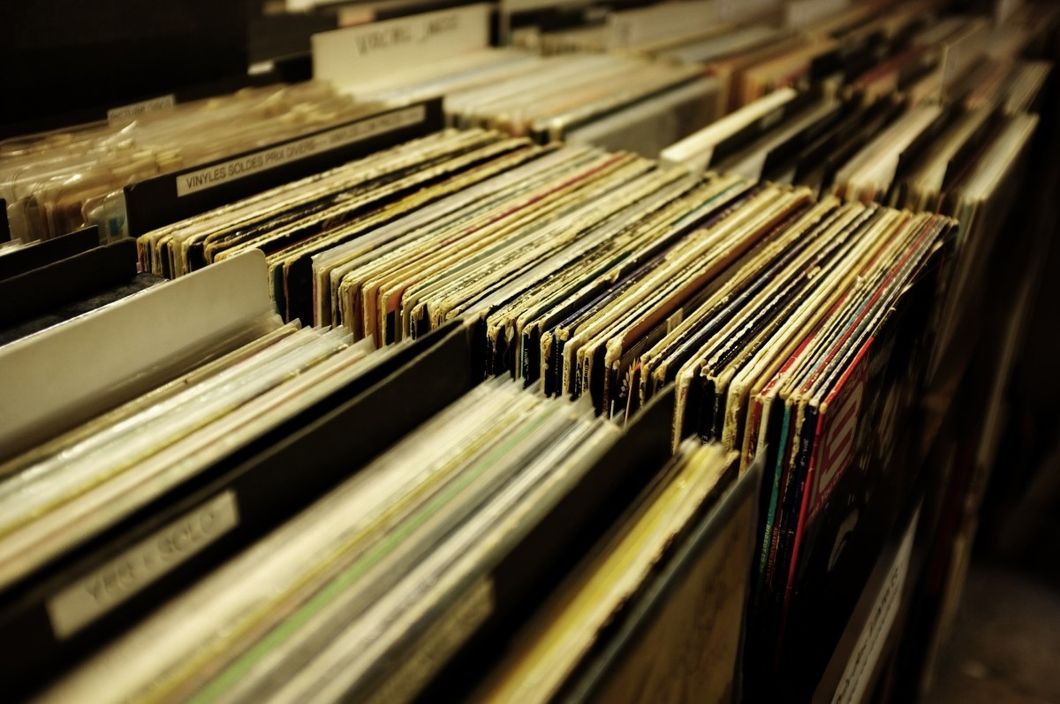Last Saturday, as I was enjoying the Arouse Student Radio charity event at Kafe Kerouac, I had the pleasure of running into an old friend. Prompted by the nature of our meeting place, our conversation quickly turned to music. I have always particularly respected this friend's taste and I have heeded his recommendations enthusiastically throughout the years. On occasion, we have even performed together at open mic nights. As we discussed the night's performers and our current favorite listens, he made a comment about all of my many past music phases, adding, "I'm sure there are plenty I don't even know about." I laughed, as this is certainly the truth. Throughout the years, I have gone hard to everything from Brockhampton to My Chemical Romance to Utah Phillips. I unironically enjoy vaporwave, yet I have a ranking of my favorite classical composers, too. Variety, not consistency, defines my music library.
While I do enjoy variety for its own sake, I must admit that my diverse taste is not completely a product of my independent will. When it comes down to passing the aux cord, it's hardly polite to subject a whole car to my most recent phase. For this reason, it has always been on me to adapt to my friends' tastes. All in all, I consider this a blessing. Without this flexibility, I would have never listened to what are now some of my favorite artists. I feel like I can connect, through music, to so many more people than I could if I remained confined to one genre.
Despite the benefits I believe myself to have gained from this exposure, it's sometimes isolating to not be able to share my new obsessions. I don't listen to other people's music to gain their approval--my desire to try new things really is genuine--but it can be hurtful and sometimes boring when friends are unwilling to expand their horizons with me. Of course, intimate knowledge of a few artists is certainly valuable, and I understand not everyone wants to experiment. But I think I need to make the case for what many see as "just a phase."
Like my music taste, my style, beliefs, interests, and habits have radically cycled over the course of my life. Though young, I feel as though I have lived pieces of many different lives already. This allows me to empathize with so many people and I feel empowered that, even in today's political climate, I am unafraid to admit wrongness and edit my position when I hear new information. As is with music, I often meet people with far more rigid lifestyles and beliefs than my own. Though I am prone to adaptation, this should not be confused with a lack of conviction or being uninformed. I believe the world is so much wider than can be understood through any one viewpoint. Just as music is not confined to the limits of genre, I think we should strive to live diversely, even if that sometimes means making mistakes equivalent to listening to Blood on the Dance Floor.
Though this notion has been on my mind a lot recently, it is not a new idea. In fact, both Aristotelian and Buddhist philosophy demonstrate support for expansion of the comfort zone and, consequently, the mind. In Aristotle's case, he believes moral rules provide a route for people to live superficially good lives. He argues that by following rules, people can live blindly and never actually understand good or bad, or why the rules exist. Similarly, Buddhism promotes "the middle way" as the best way to live. This path is the one that runs in between, on one hand, a life of sensory pleasure and hedonism, and on the other, complete asceticism and self-denial. To follow this middle way, however, one must first find it. To truly understand the virtues and vices of each side, experience must be one's teacher. This notion has been repeated throughout the centuries. As poet William Blake once wrote, "the true method of knowledge is experimentation."
Now, I'm hesitant to make someone's limited music taste out to be a moral issue. At the very least, I won't be preaching about it on the Oval. However, I do think it is valuable to take a moment to self-examine. If you recommend music but never add to your own repertoire, why not? You can always love your own music, of course it will still be special to you, but what harm could possibly ensue from listening to something you never thought to listen to? It is easy to say you don't like a genre before giving it a worthy lookover. In my experience, some absolute gems are hidden in the most seemingly-hopeless places. Even if you don't end up adopting new music, consider why. Which aspects of the song failed to appeal to you? Did any individual parts stand out as good? I believe good taste, in music and beyond, is necessarily informed. This does mean making the wrong choices, but only as a means to eventually understand the right ones. At this point, if you feel so inclined, go listen to something ugly or beautiful or both and do not be afraid to question the pretense of a cohesive life. There is power in phases and completeness in dabbling.



 Photo by
Photo by 












